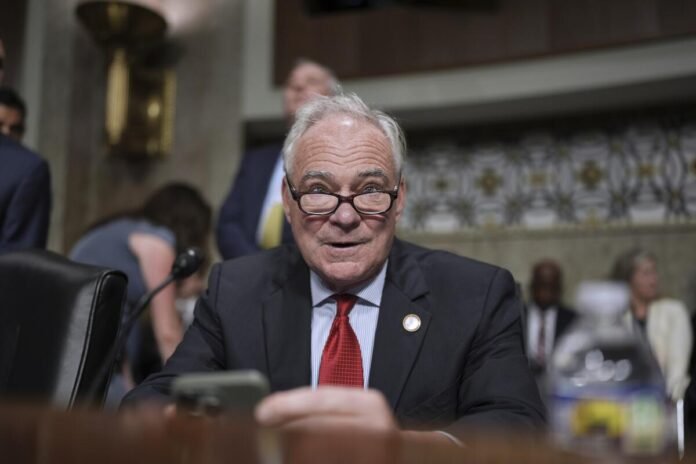War powers resolution battles flared again on Capitol Hill as Senate Democrats clashed with Republicans over presidential war authority. The latest effort, led by Senator Tim Kaine, aimed to reassert congressional control over military action. But on Thursday, the Senate rejected his proposal in a heated, mostly partisan vote.
Kaine’s war powers resolution called for congressional debate and approval before any president could launch military strikes or declare war. The resolution specifically addressed concerns following President Donald Trump’s recent strike on Iran. Despite support from Senators John Fetterman and Rand Paul, the resolution ultimately failed.
Earlier this week, Kaine insisted the fragile ceasefire between Israel and Iran increased the urgency for legislative action. He argued the recent airstrikes on Iran’s nuclear facilities occurred without congressional approval. That, he said, proves why lawmakers must regain their constitutional role in authorizing military force.
“I came to Washington to stop another unnecessary war,” Kaine declared before the vote. He referenced the 2002 decision to grant war powers to President George W. Bush. According to Kaine, those rushed decisions led to costly consequences in Iraq. He warned that today’s leaders risk repeating history.
Senate Republicans largely disagreed. They defended Trump’s strike as a justified response under his role as commander in chief. Some cited constitutional law supporting executive power in fast-moving military situations. Others dismissed Kaine’s plan as disconnected from reality.
Senate Minority Leader Mitch McConnell led the opposition. He reminded colleagues that several Democratic presidents launched similar strikes without congressional votes. Citing military actions in Libya, Syria, and Yemen, he called Kaine’s stance inconsistent.
“I haven’t seen the usual supporters of these resolutions answer tough questions,” McConnell said. He claimed the war powers resolution ignored strategic and constitutional context.
Legal experts remain split. The Constitution gives Congress power to declare war, but presidents control the military. The 1973 War Powers Resolution tried to clarify this balance after Vietnam. Still, disputes continue over how much freedom a president should have in urgent situations.
For now, Kaine’s resolution is shelved. But the bigger issue how to define war authority remains unresolved. As global conflicts grow more complex, the call for congressional oversight will likely return.
For more political updates visit DC Brief.


